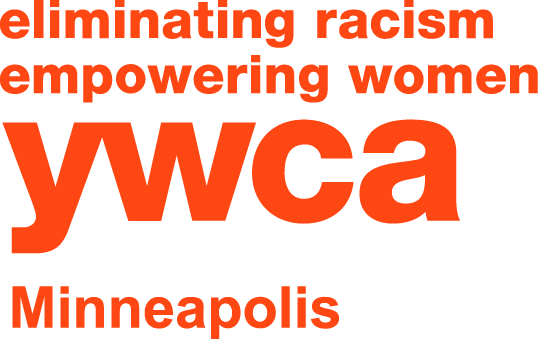Intersectional Community Organizing: It's Time to Act!™
May 19, 2022
On Tuesday, May 10, YWCA Minneapolis welcomed a panel of community organizers for our second and final It’s Time to Act!™ forum. It’s Time to Act! is a forum series that engages participants for deeper learning and action planning around issues of race, equity, identity and social justice. Our gratitude goes to Biiftuu Ibrahim Adam, Juventino Meza and Revmira for a dynamic conversation about how many identities and issues intersect in organizing and the pursuit of justice.
What Does Intersectionality Mean?
This forum was on intersectional community organizing. Intersectionality is a term that was coined by legal scholar Professor Kimberlé Crenshaw in 1989 – it built on other scholarship and activism largely from Black feminist leaders and collectives. Professor Crenshaw’s framing of the term was specifically about how legal precedent did not adequately account for the unique experiences of oppression navigated by Black women, who might experience at any given time combinations of racism and sexism that were compounded.The concept of intersectionality has grown to encompass the many identities communities hold. The key thing to remember about intersectionality is that it does not just mean that people have multiple identities (although this is part of it) but also that identities are linked to specific histories, privileges and oppressions. The intersections of those things make for unique experiences among communities and individuals.
Community Organizing with an Intersectional Framework
When we put an intersectional framework on something, we want to analyze how a decision, policy or change might have impacts based on the various ways that people experience our systems. The conversation about intersectional community organizing focused on the understanding that issues and campaigns are not one-dimensional, and also the understanding that community organizers themselves contain multitudes and are impacted by many intersecting systems. Some considerations are below:
- Understand the multiple identities that you hold. Which are closer to power? Which may be more marginalized? Know your “lane” – what do I have to give and who do I wish to connect with?
- Movements should center the stories and lived experiences of those most impacted and most marginalized, i.e. targeted universalism.
- Find points of alignment and connection across differences. What is something we can ALL benefit from if it is changed?
- Organizing is ultimately about building relationships to advocate for healthier communities.
We learned from our presenters that organizing relies on storytelling and narrative, that it requires identifying organic leaders in the community and building networks of people. When it comes down to it, community organizing is about power and about solidarity. Juventino reminded us of a quote from Sailor Moon:
"I wasn’t always fighting for love and justice. I was fighting for my friends and loved ones."
View the event recording below.
Resources
Our panelists shared resources for further learning that we are passing along:
- New Leaders Council
- Capitol Pathways
- The Tyranny of Structurelessness, about organizing movements effectively
- Author & Union Organizer Jane McAlevey: Jane McAlevey | No Shortcuts
- Organizing vs. activism
- White People Stop Asking Your Black Friends How They Are Doing RIGHT NOW, blog post about how we need to reach out to each other on an ongoing basis and not wait for tragedies to reach out to folks
- Unidos MN (formerly NAVIGATE MN)
- Reproductive Justice
- Understanding the need to connect with and learn from Native groups
- Intersectionality as defined by Kimberlé Crenshaw
- Audre Lorde’s piece about changing systems from within those systems
- Author and activist Alicia Garza
Take Action and Get Involved
Here are some opportunities to take action within your community and participate in intersectional organizing:
- Get in touch with Emergency Workplace Organizing Committee, an organization that supports people looking to organize at their workplace.
- Attend the next Missing and Murdered African American Women Task Force meeting on Friday, May 27 from 9:00 am – 1:00 pm at the University of Minnesota Research and Outreach-Engagement Center (UROC). Public comment is accepted.
- Start small! You can volunteer with local neighborhood publications to translate and disseminate information. Remember that local work gets things done!
- 2022 is a Minnesota election year – all state representatives and senators are up for election, as well as the Governor and Lieutenant Governor and all Constitutional Officer positions. See if there is a campaign or coalition you’d like to get involved with.
- Offer resources to grassroots organizers in your community (as an individual or as an organization) – whether that is money, space, supplies or a meal.
Learn more about YWCA Racial Justice ProgramsIt's Time to Act! Intersectional Community Organizing

